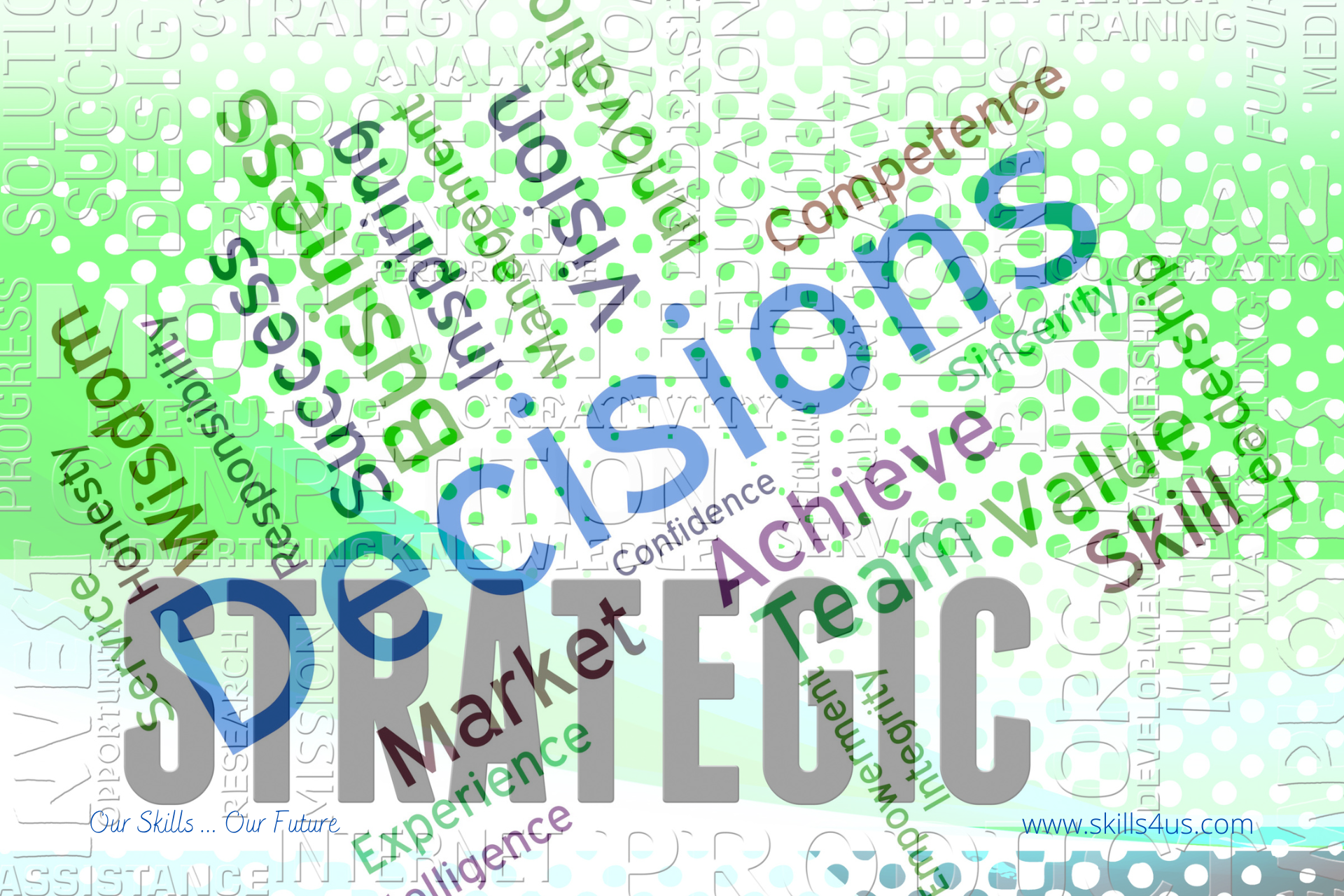Strategic decision-making is an essential skill for effective leadership. The outcome of a leader’s choices significantly affects employees, customers, the market, and ultimately the organization’s success. Developing such a skill requires knowledge, experience, and intuition, and it also requires a process to help identify the problem and choose the right action.
What is strategic decision-making?
Strategic decision-making understands the interaction of decisions and their impact on the organization to gain an advantage. Also the true strength lies in combining the right decision at the right time. Moreover, organizations must make decisions that maximize short-term results and minimize long-term risks to remain competitive and viable. Note that the strategic decision-making process is the organization’s lifeblood and reveals future possibilities and options that can be implemented to achieve success.
Reasons and Importance of Strategic Decision-Making
The organization must improve in the future, whether the present is better or worse. Therefore, it is necessary to make strategic decisions to overcome the obstacles to the organization’s progress. Hence the importance of strategic decision-making for the organization is represented in the following:
- It facilitates organizational learning, improves performance, and results, and reduces the likelihood of strategic failure or competition.
- It can provide the organization with a competitive advantage, which requires maintaining it as an essential skill and continuing its continuous development.
- Strategic decisions require high responsibility and focus on long-term goals. Therefore, much knowledge is needed about many things, including processes, systems, and policies.
- Strategic decision-making is all about making the right decisions at the right time. So it’s not about making a decision and then not acting on it; it’s about implementation, which is the process of actually doing the work.
- It can be the means to know the best way to achieve the business objective and the risks. So organizations must have a decision-making process driven by data and analysis, which includes a well-defined set of policies and rules that everyone adheres to.
- It helps organizations to be proactive, as the strategic decisions taken by business leaders improve the organization’s efficiency. Also Note the way they decide the future course of action of the organization.
- It can affect an organization in myriad methods, from how much money it brings in to how many employees it has. Also the type of work it does, and how its customers and society view it.
Steps to Strategic Decisions-Making
1. Define the problem (consider the following questions):
- what’s the problem? Can it be solved? Is this the real problem, or are symptoms of a more significant problem?
- Does she need immediate attention, or can she wait? Is it likely to go away on its own? Is it possible to risk ignoring it?
- what is the point? What should the resolution accomplish?
2. Gather information (find information about how and why the problem occurred):
- Stakeholders: Talk to the individuals or groups affected by the problem
- Facts and data: research, benchmark studies, interviews with reliable sources, and observed events
- Constraints: lack of funding, resources, and cultural barriers
- Ask: What do I not see? What did I miss?
3. Develop and evaluate options (create a wide range of options):
- Choose options that show promise, need more information, could be merged or canceled, or will be challenged.
- Weigh the advantages/disadvantages of each. So, consider the cost of the work, the potential loss of morale/teamwork, the time needed to implement the change, whether it meets the criteria, and how practical the solution is.
- Anticipate the results of each option
- Ask: What is the worst solution?
4. Choosing the Best Action (Select the option that best meets the goal of the decision):
- Consider factual data, intuition, and emotional intelligence when determining a course of action.
- Accept that the solution may need improvement.
- Consider the middle ground. So, haggling over competing solutions may lead to the best decision.
5. Implementation and monitoring of the decision (devise a plan to implement and monitor the progress of the decision):
- Step-by-step process or procedures to solve the problem
- Communication strategy to notify stakeholders
- Identify/allocate resources
- Implementation schedule
- Measurements / Benchmarks to measure progress
An organization’s ability to make the right decisions is essential in determining success or failure. Therefore, Not all decisions are the same, and not all must be made on the same day or week. If you have an idea, you must have a plan, path, and timeline for implementing your idea. Understanding which ideas are most valuable to the organization is essential, and then you can use the data to make informed strategic decisions.
